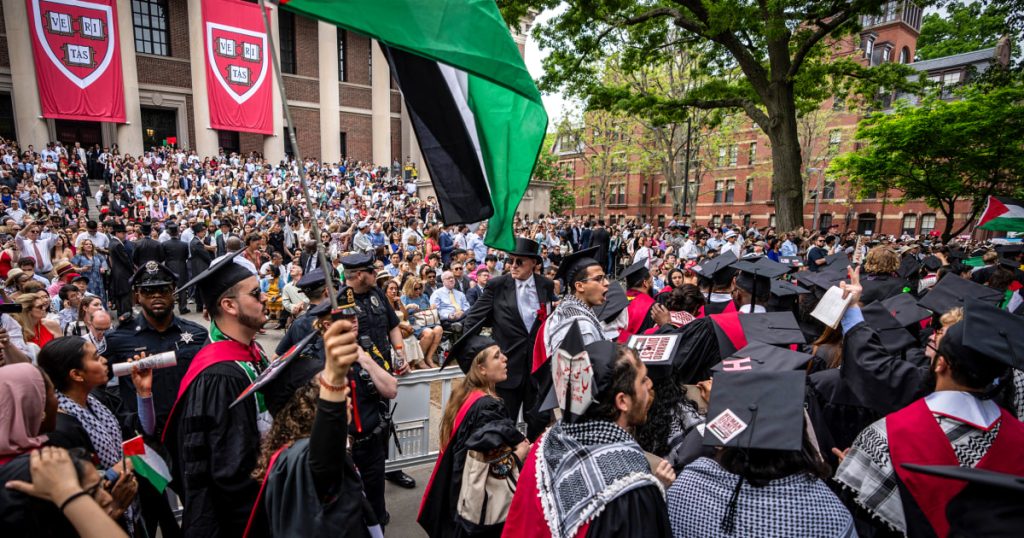Pro-Palestinian protests continued at Harvard and UCLA this spring, despite the dismantling of encampments on some American college campuses. At Harvard College’s graduation, a walkout was staged to protest the disqualification of 13 students involved in earlier protests. The decision to omit these students from commencement was met with chants and slogans from participants and led to a moment of solidarity observed by the interim president. Some protesters were under the impression that Harvard would allow the barred students to graduate, leading to disappointment and frustration among the graduating class.
The protests at Harvard and UCLA were part of a larger movement across the U.S. and other countries to decry civilian deaths in Gaza and call for schools to divest from financial support of Israel. Harvard had voluntarily dismantled its encampment and planned to meet with protesters to discuss divestment. The university stated its intention to confer degrees to 1,539 students at commencement and fast-track degrees for the excluded students pending successful appeals. In addition to the 13 barred students, five were suspended and over 20 face probation, adding to the somber atmosphere of what should have been a joyous occasion for graduating students.
At UCLA, pro-Palestinian protesters returned to campus, prompting the LAPD to be placed on high readiness. Protesters gathered at Kerckhoff patio before a “takeover” of nearby Dodd Hall was attempted, leading to a police response and heightened tensions. The presence of a Palestinian flag at Dodd Hall and the words “Intifada Hall” written on the building reflected the intensity of the protests. UCLA issued a statement warning that an encampment would not be tolerated this time, threatening arrest, disciplinary action, and a campus ban for those who refused to disperse.
The previous clashes at UCLA on April 30 resulted in a mob attack on pro-Palestinian protesters before police intervened to break up the encampment and make arrests. The inaction by campus and city police during the initial hours of the clash led to investigations and the reassignment of UCLA’s chief of police. UCLA Chancellor Gene Block expressed regret at waiting days to dislodge the encampment, acknowledging the need for immediate action in response to similar protests in the future. The ongoing tensions on campus highlight the complex issues surrounding the Israeli-Palestinian conflict and the challenges universities face in balancing free expression and campus safety.
Overall, the protests at Harvard and UCLA underscore the deep divisions and emotions surrounding the Israeli-Palestinian conflict, with students and faculty engaging in activism and protests to raise awareness and support for their respective causes. The response from the universities, police, and city officials reflects the delicate balance between upholding free speech and ensuring public safety on campus. The fallout from these protests, including the disqualification of students and police interventions, highlights the complexities of addressing political and social issues within the academic setting. As tensions continue to simmer, the need for dialogue, understanding, and constructive engagement remains essential to navigating these challenging and contentious issues in the future.


